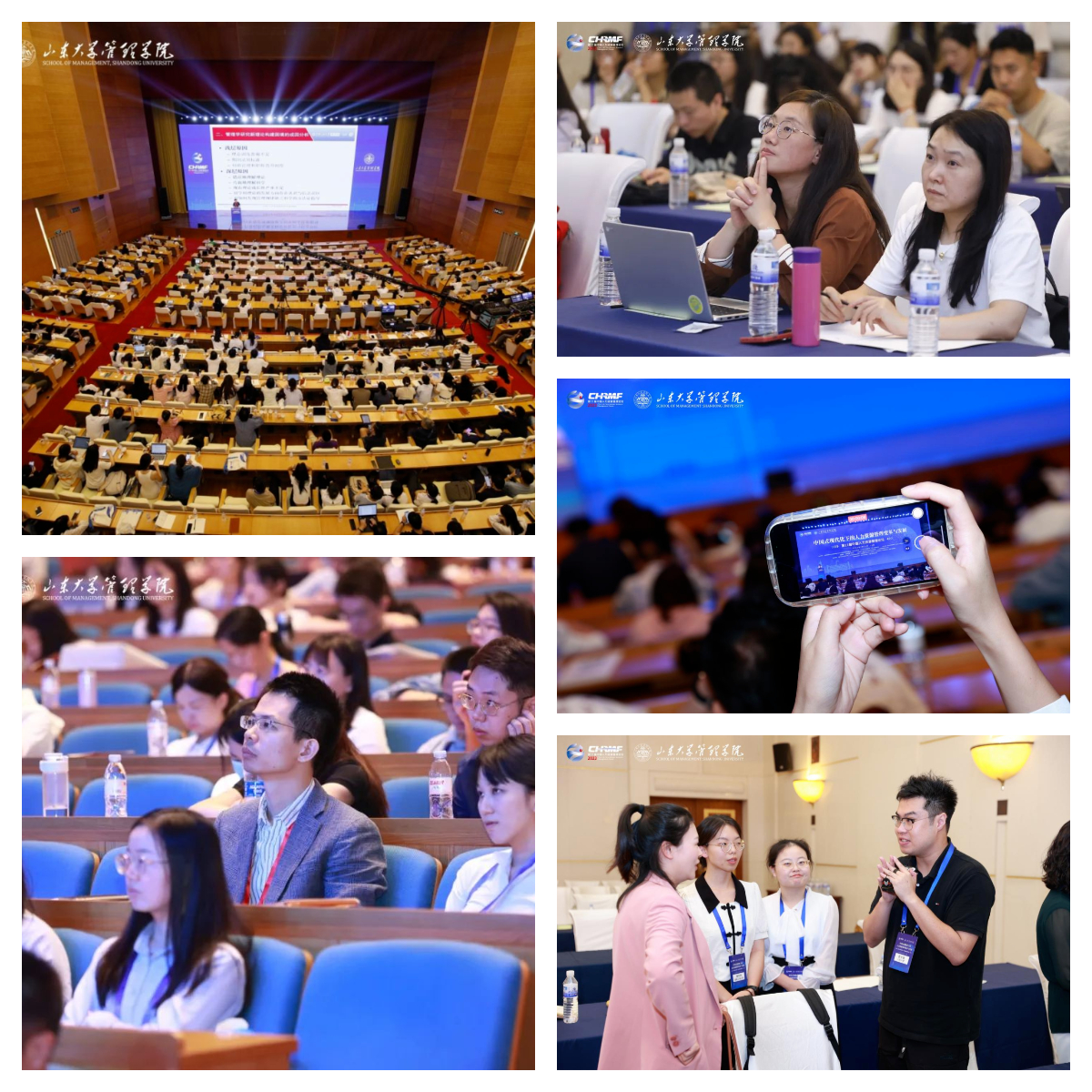On September 16th and 17th, to further implement the national strategy of strengthening the country with talents, promote the theoretical innovation and practical development in the field of human resource management and organizational behavior in China, and strengthen the communication and cooperation between scholars and the business practice community, the 11th China Human Resource Management Forum, “the Change and Development of Human Resource Management under Chinese Modernization”, was successfully held in Jinan, Shandong Province. Zhao Shuming, Chairman of the forum, Vice President of China Management Modernization Research Association, and senior professor of humanities and social sciences and Honorary Dean of the School of Business at Nanjing University, Chen Hongwei, Deputy Secretary of the Party Committee of Shandong University, Liu Zuoyi, Deputy Director of the Management Science Department of the National Natural Science Foundation of China, and Yang Zhi, Dean of the School of Management of Huazhong University of Science and Technology, and president and editor-in-chief of the Journal of Management, attended the forum and delivered speeches.
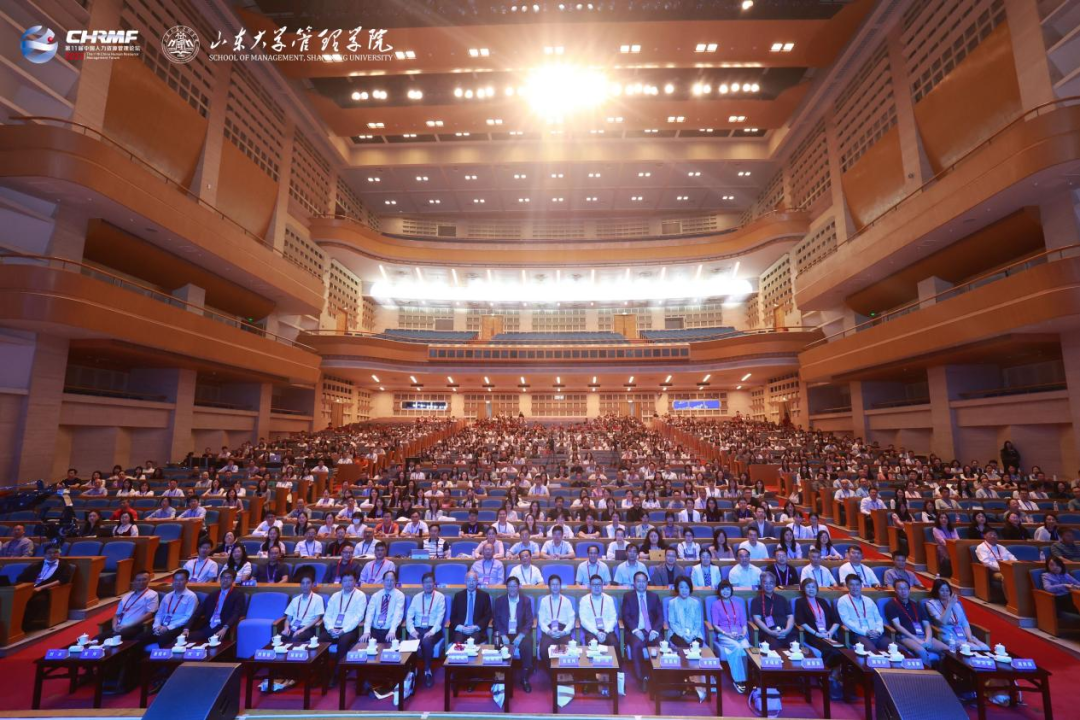
The forum was jointly launched by Nanjing University, Nankai University, Huazhong University of Science and Technology and the Journal of Management, etc., guided and supported by the Department of Management Science of the National Natural Science Foundation of China, and co-sponsored by Organizational Behavior and Human Resource Management Committee of China Management Modernization Research Association, School of Business of Nanjing University, School of Management of Huazhong University of Science and Technology, and School of Management of Shandong University, and jointly organized by School of Management of Shandong University and Shandong Institute of Talent Development Strategy. It attracted more than 800 experts and scholars, enterprise representatives, graduate students and people from all walks of life from over 200 colleges and universities and relevant organizations across the country, containing keynote speeches, four parallel forums, entrepreneur forum, peak dialogues between entrepreneurs and management scholars, 28 sub-forums and poster exchanges.
Opening Ceremony
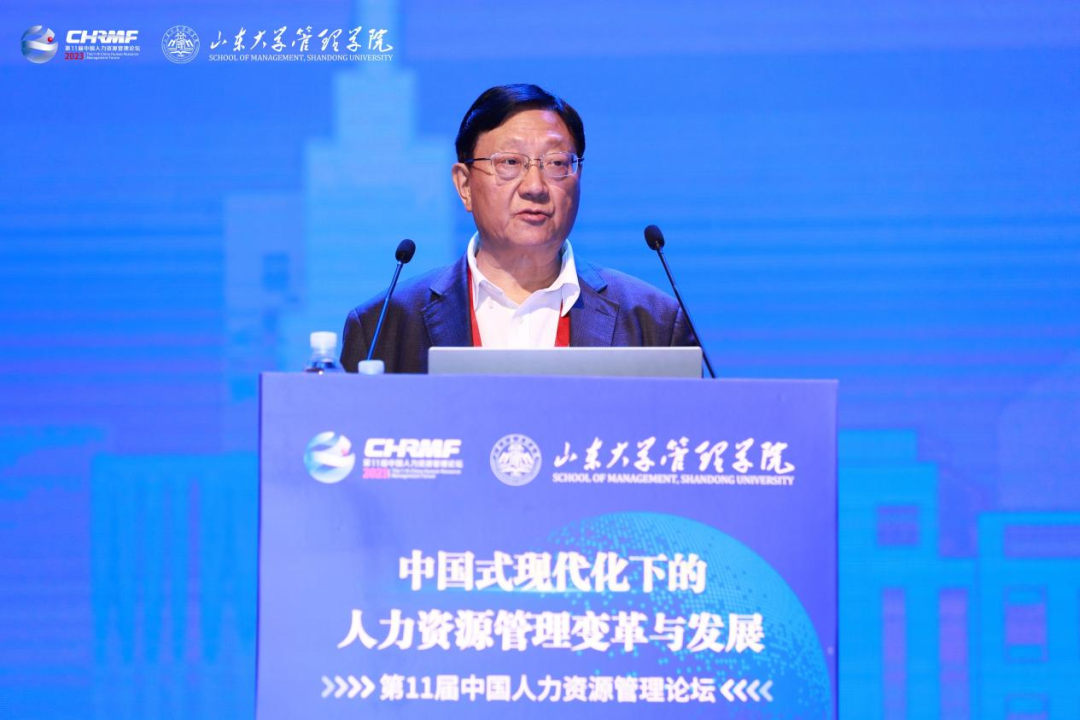
Professor Zhao Shuming pointed out in his speech that talent is an important force to promote China’s modernization, and this forum aims to further implement the national strategy of strengthening the country with talent, build a bridge to strengthen the communication and cooperation between the theoretical community of research and the practical community of enterprises, and further promote the theoretical innovation and practical development in the field of human resource management and organizational behavior in China.
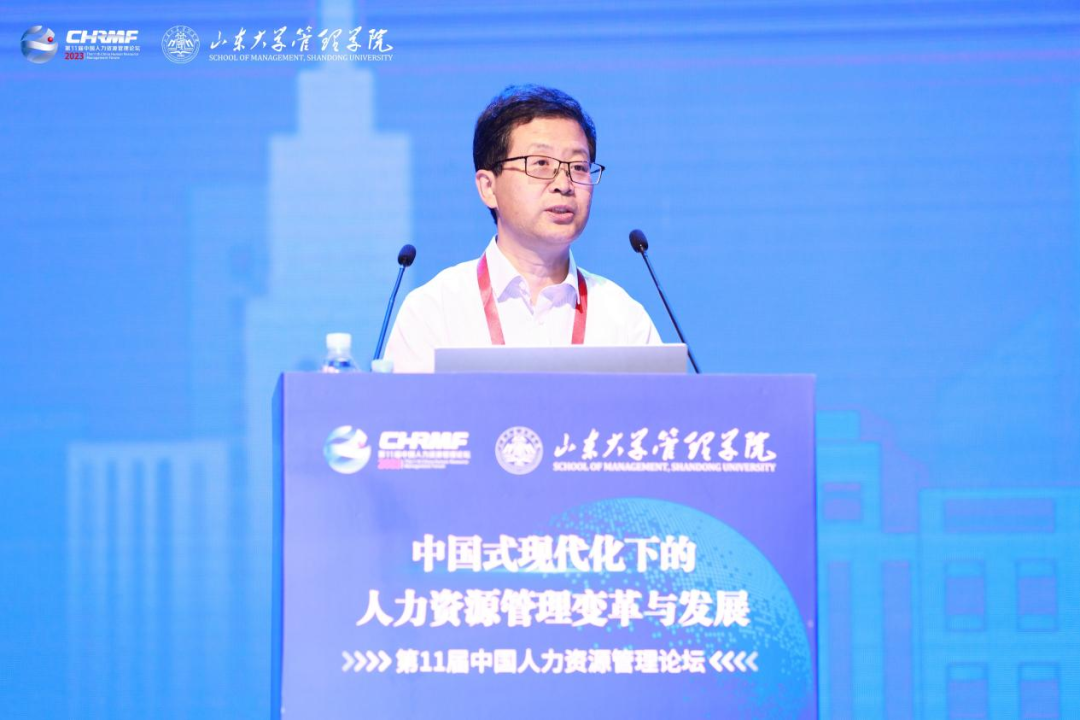
Chen Hongwei introduced the purpose of Shandong University and the implementation of the strategy of strengthening the university with talents and academics, and hoped that through the high-level academic exchange platform, promoting the academic exchanges between experts and scholars and research cooperation and providing intellectual support and innovative contributions to accelerate the construction of the world’s important talent centers and innovation highlands.
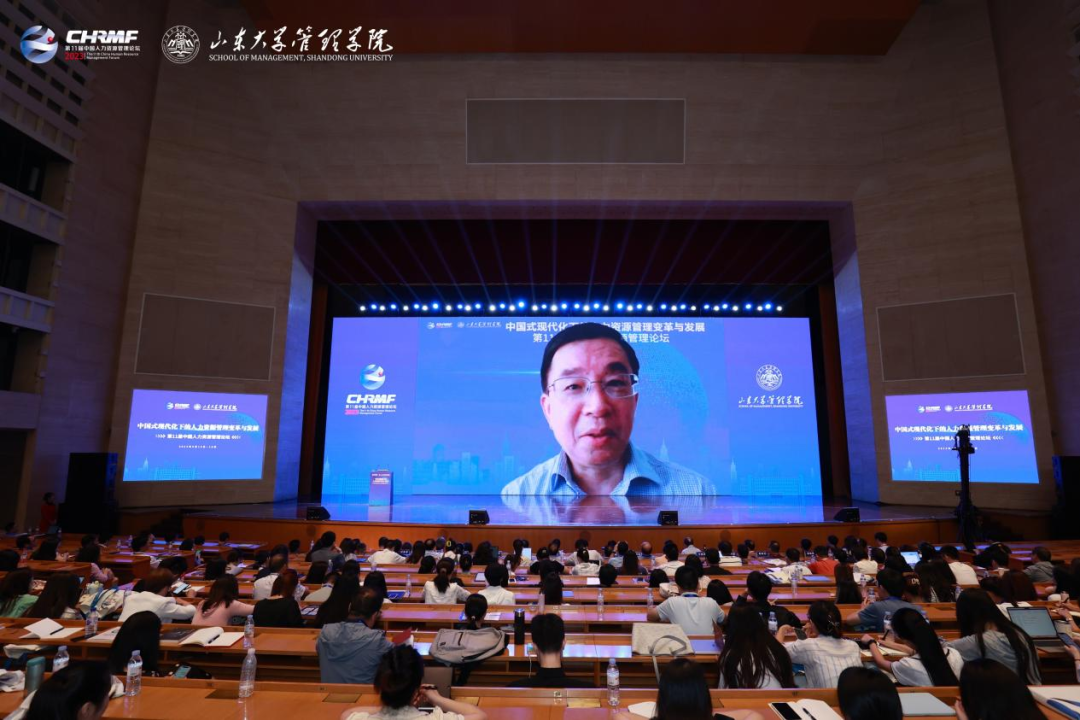
Researcher Liu Zuoyi talked about that talent is an important support for the development of Chinese modernization, and that the Fund Committee focuses on the foundation, frontiers and talents and pays attention to innovative teams and interdisciplinary intersections, with a view to helping Chinese management scholars make high-level research results and give full play to the important role of management science in the national economy construction and the social development.
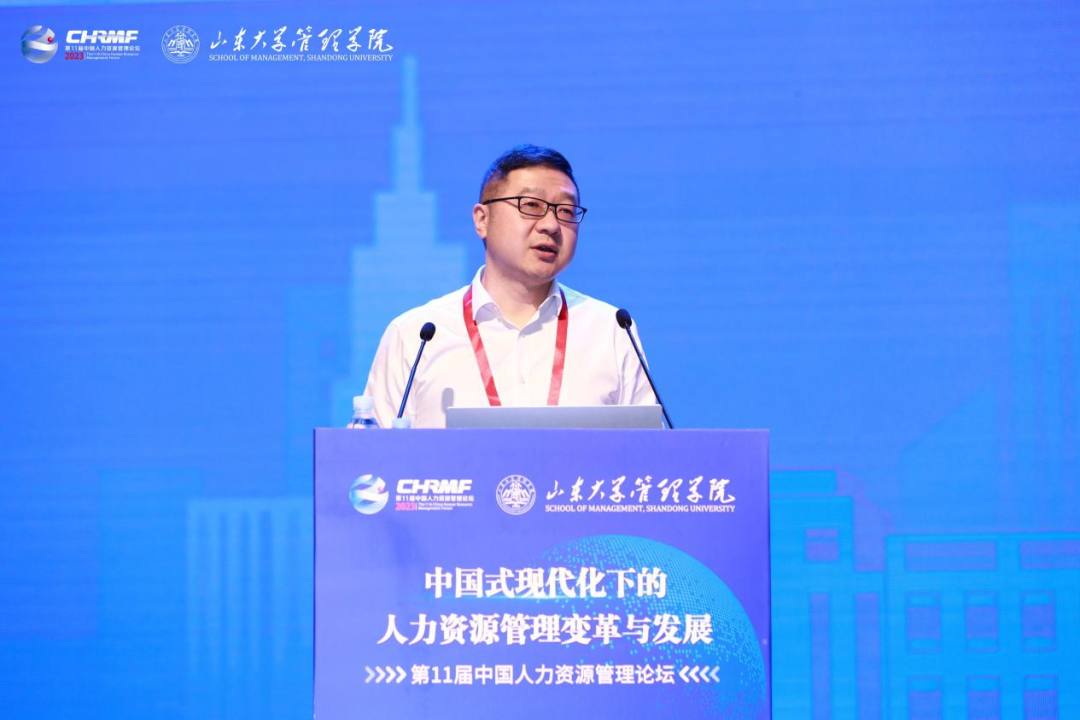
Professor Yang Zhi reviewed the important role played by the forum in promoting the research on organizational behavior and human resource management in China since its inception, and sent a message to the participants that they should actively practice the mission and responsibility of human resource management researchers in the new era and make contributions to the promotion of the theoretical research and practical innovation of human resource management in China.
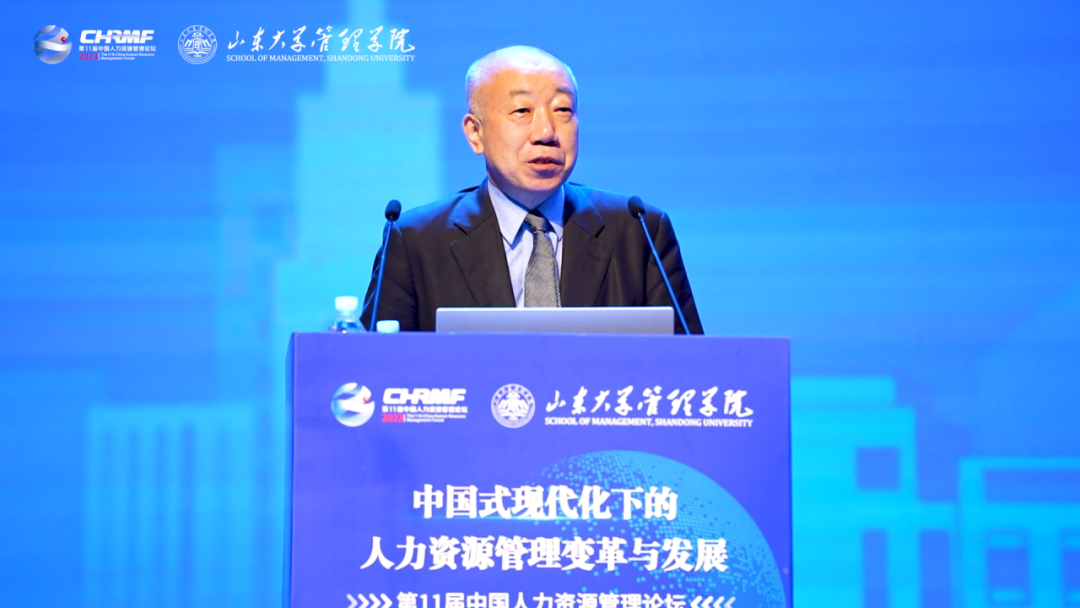
Wu Changqi, Dean of the School of Management of Shandong University, presided over the opening ceremony.
Keynote Speeches
Nine renowned scholars from Peking University, Tsinghua University, Hong Kong Baptist University and other top universities in China were invited to give keynote speeches.
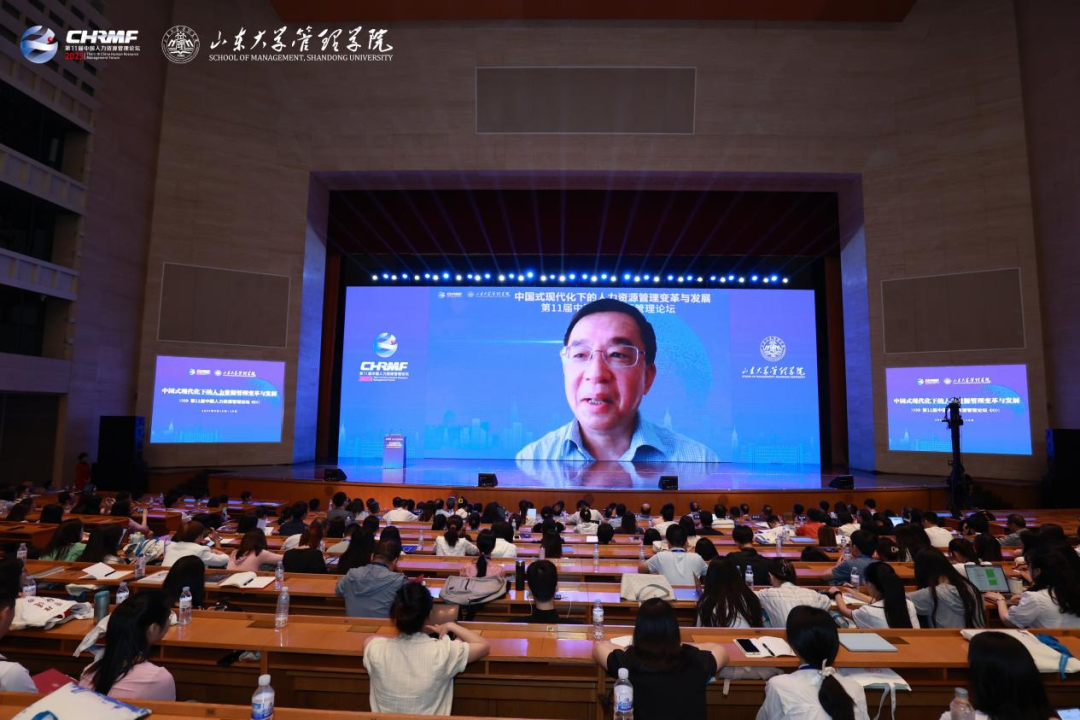
Researcher Liu Zuoyi made a keynote speech entitled “Interpretation of the Reform of the National Natural Science Foundation of China (NSFC)”, introducing the reform of the NSFC in terms of support for young scholars and the construction of the research environment. With regard to the support for young scholars, NSFC has expanded the quota for young scholars to apply for NSFC Talent Programs, explicitly requested to play an important decision-making role for young scientists in the evaluation of NSFC, and further tilted the policy towards female scientists. As to the construction of research environment, the evaluation team construction of distinguished young scholars and excellent youth scholars has been further improved with the evaluation fairness greatly enhanced.
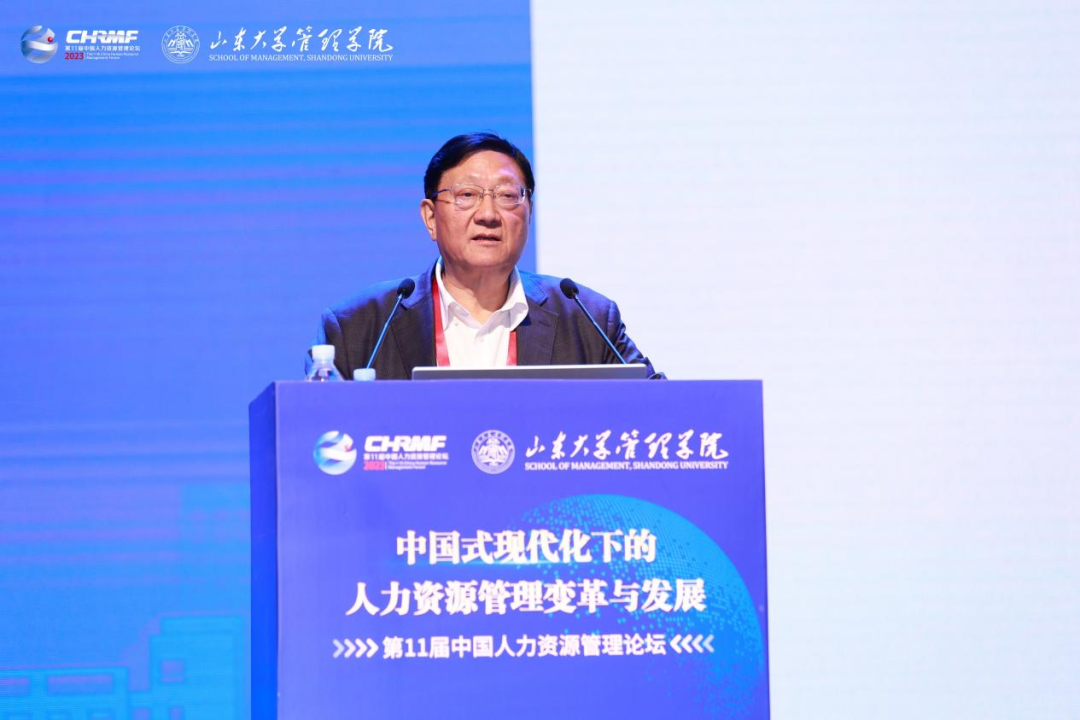
Professor Zhao Shuming gave a keynote speech entitled “Important Issues in Human Resource Management: Research on Work-Life Balance”, starting from the origin of work-life balance, explaining the theoretical framework and functioning mechanism of work-life balance, and analyzing its significance. He argued that to achieve work-life balance in a society full of conflicting responsibilities and over-commitment, it is necessary to achieve self-management as well as to give full play to the roles of the three levels of the individual employee, the enterprise organization and the country, constantly searching for equilibrium and creating the future.
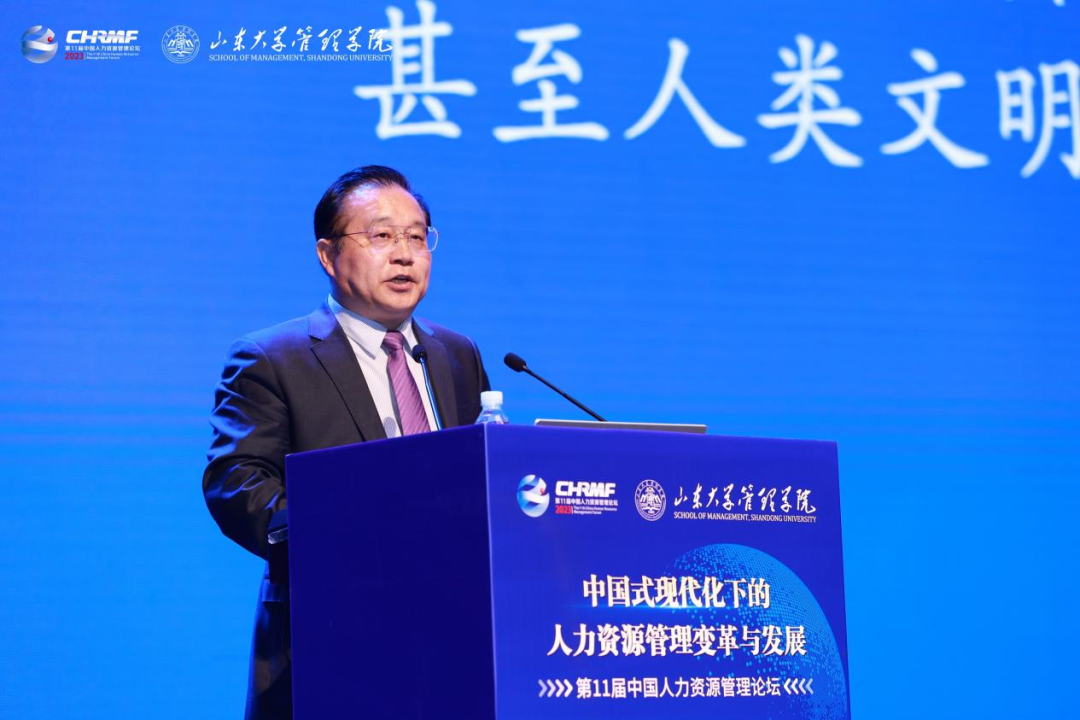
Professor Chen Guoquan of Tsinghua University made a keynote speech entitled “Exploring the Innovation of Chinese Management: Research Progress and Content System of Spatio-Temporal Theory", specifically explaining the research progress and content system of “Spatio-Temporal Theory of Leadership and Management” and “Spatio-Temporal Theory of Organizational Learning” with the beginning of the significance of establishing an original management theory. He pointed out that leaders and managers can simultaneously understand and design their organizations, analyze and make decisions, and take appropriate actions and initiatives from both the temporal and spatial perspectives.
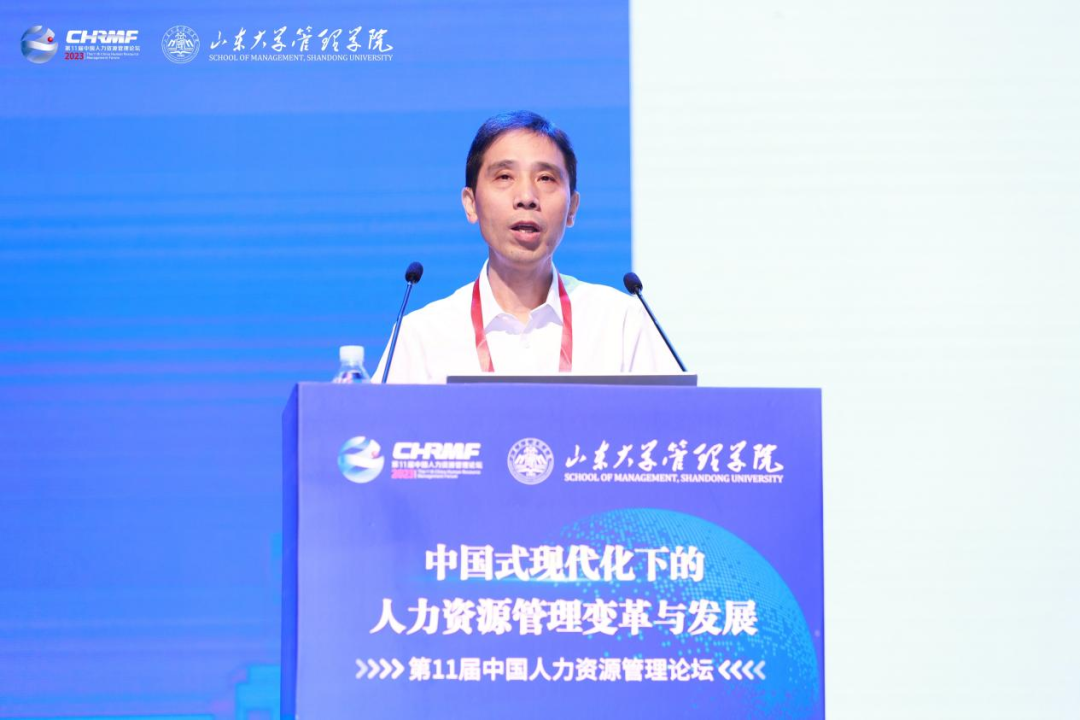
Professor Liu Zhiqiang of Huazhong University of Science and Technology made a keynote speech entitled “AI and Organizational Innovation Management: Research Themes and Future Directions”, pointing out that AI formally enters into the business practice of human resource management in combination with specific cases from the perspective of “AI is helping organizations redefine performance and innovation”, emphasizing the importance of AI to organizational innovation, and explaining “how AI enhances the quality of decision-making in the process of innovation”, “how it acts on the deciding factor for innovation in the organization”, and “how to update the innovation process through automation”.
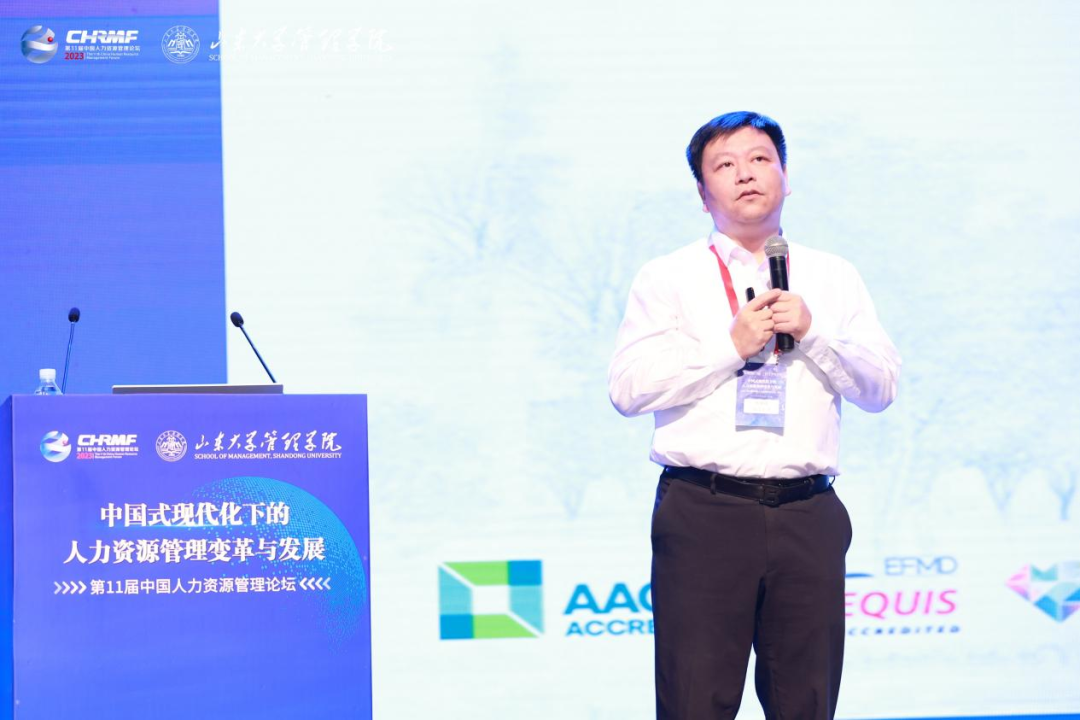
Professor Shi Junqi of Zhejiang University gave a keynote speech entitled “Aging and Career Development”, elaborating on the factors affecting the retirement decision-making of older employees combined with the three psychological models of retirement from the analysis of three psychological definitions of retirement. He pointed out that China has officially entered the era of negative population growth. With the elderly population gradually increasing, rapid aging and super-large elderly population have become an important national situation in China, and paying attention to the career development of retired elderly employees is crucial to solving the aging population.
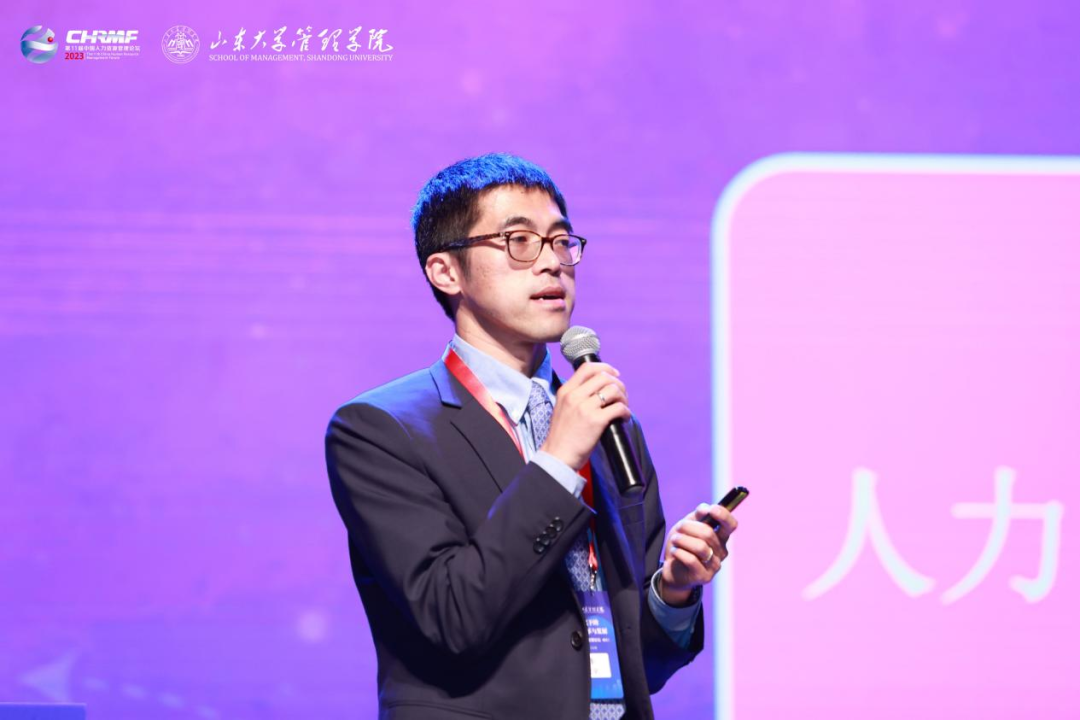
Professor Jiang Kaifeng of Ohio State University and Peking University gave a keynote speech entitled “Dynamic Research Perspectives on Strategic Human Resource Management”, starting from the analysis of the relationship between strategic human resource management (HRM) and organizational performance, emphasizing the important value of dynamic research perspectives for the research of strategic HRM, summing up the current status quo of the dynamic research of strategic HRM, and analyzing the topics of “the dynamic impact of antecedent variables on human resource management”, “the dynamic correlation of different human resource management measures”, and “the dynamic impact of the outcome variables of the human resource management system”.
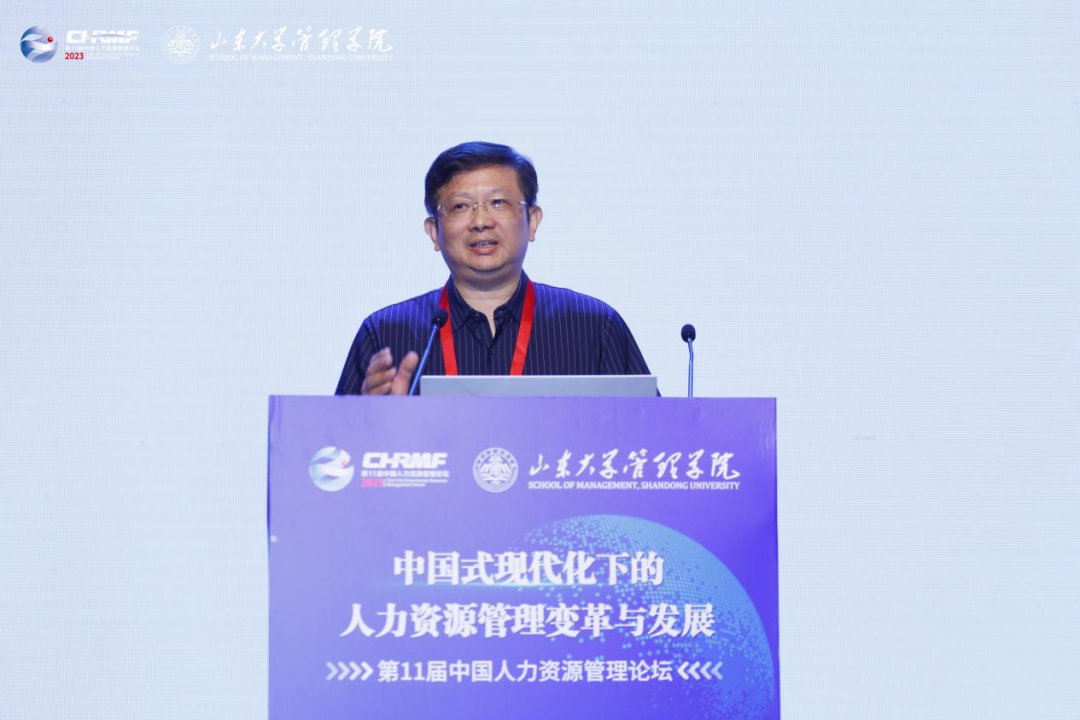
Professor Zhang Kai of Renmin University of China gave a keynote speech entitled “Dilemma and Transcendence of New Theory Construction of Management”, which centered on four issues, namely, “Performance of Management Theory Development Dilemma”, “Analysis of the Reason for the New Theory Construction Dilemma of Management”, “Strategic Thoughts of Transcendence Theory Development Dilemma”, and “Implications for Local Management Theory Innovation”. He emphasized that the management community should revise the scientific concept of management, re- recognize the nature of the theory, and face up to and innovate the basic concepts and fundamental theories of management disciplines.
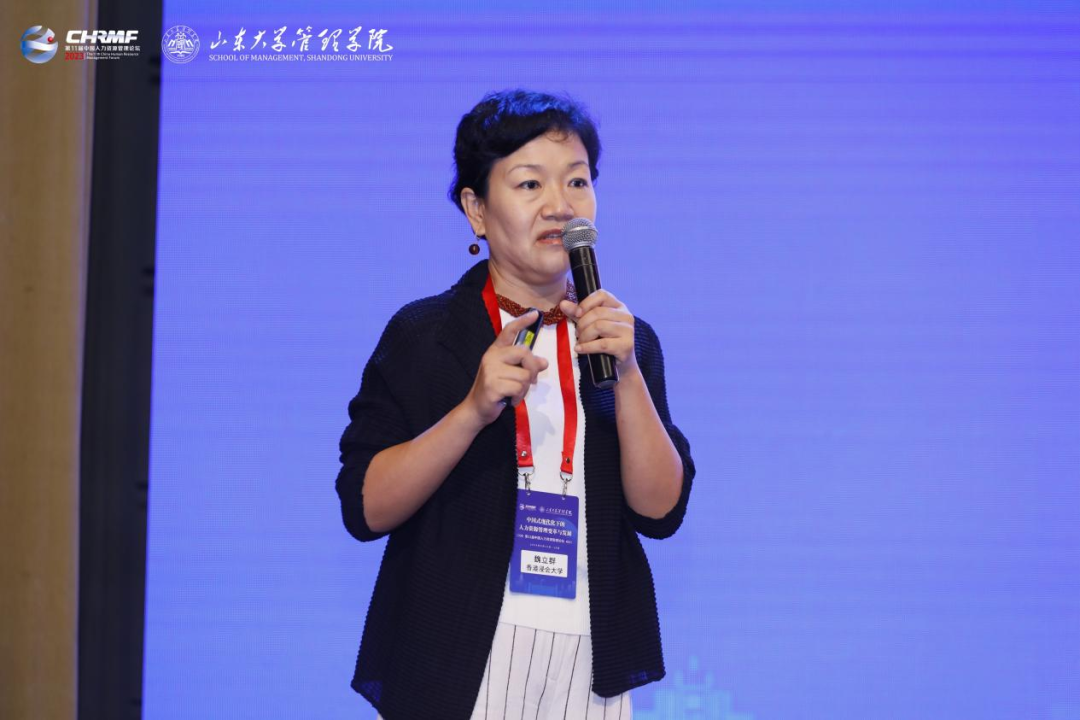
Professor Wei Liqun of Hong Kong Baptist University gave a keynote speech entitled “Human Resource Management in New Venture Enterprises--Exploring the Research Direction”, further explaining the key elements and ways of constructing strategic human resource management in new ventures starting from the impact of strategic human resource management on organizational performance and related contextual factors. She proposed that HRM in start-ups is a process from partial elements to system construction and then to functions.
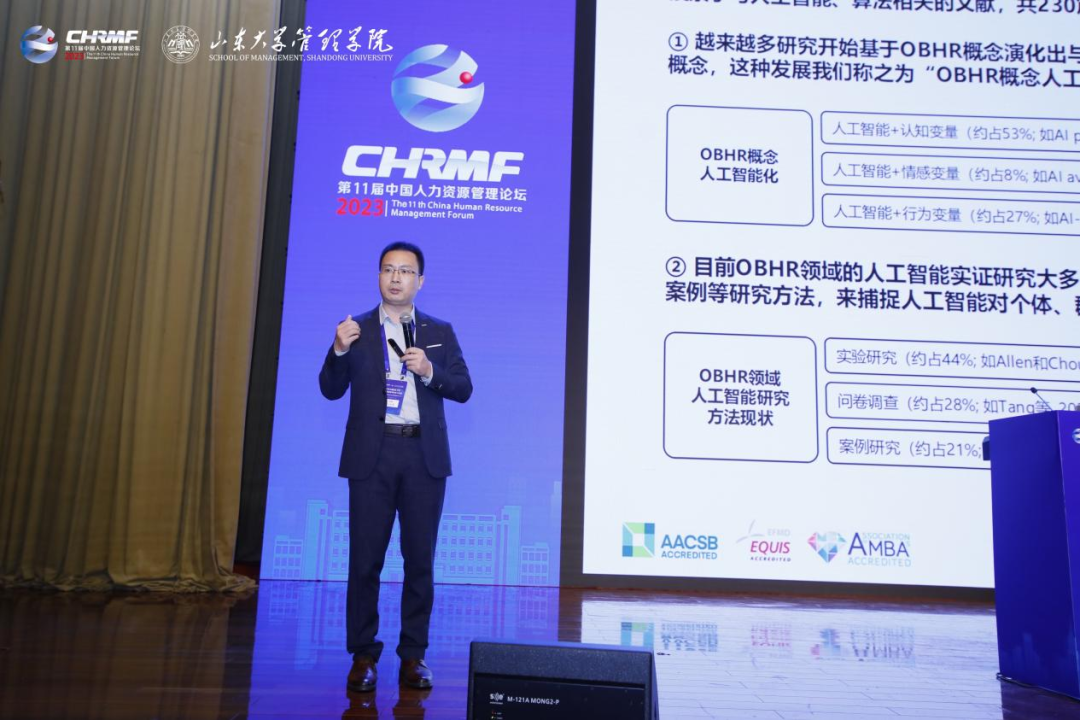
Professor Wang Lin of Sun Yat-sen University gave a keynote speech entitled “Artificial Intelligence Research in OBHR Field”, in which the concepts related to artificial intelligence are evolved based on the OBHR concept, and the development of artificial intelligence in OBHR concept was specifically explained. He emphasized that people should also dig deeper into the core characteristics of AI and its impact on OBHR theory in the future. In combination with interdisciplinary AI research methods and ideas, people should further explore the “double-edged sword” effect of AI and its role and regulation mechanism, and promote AI research in OBHR field.
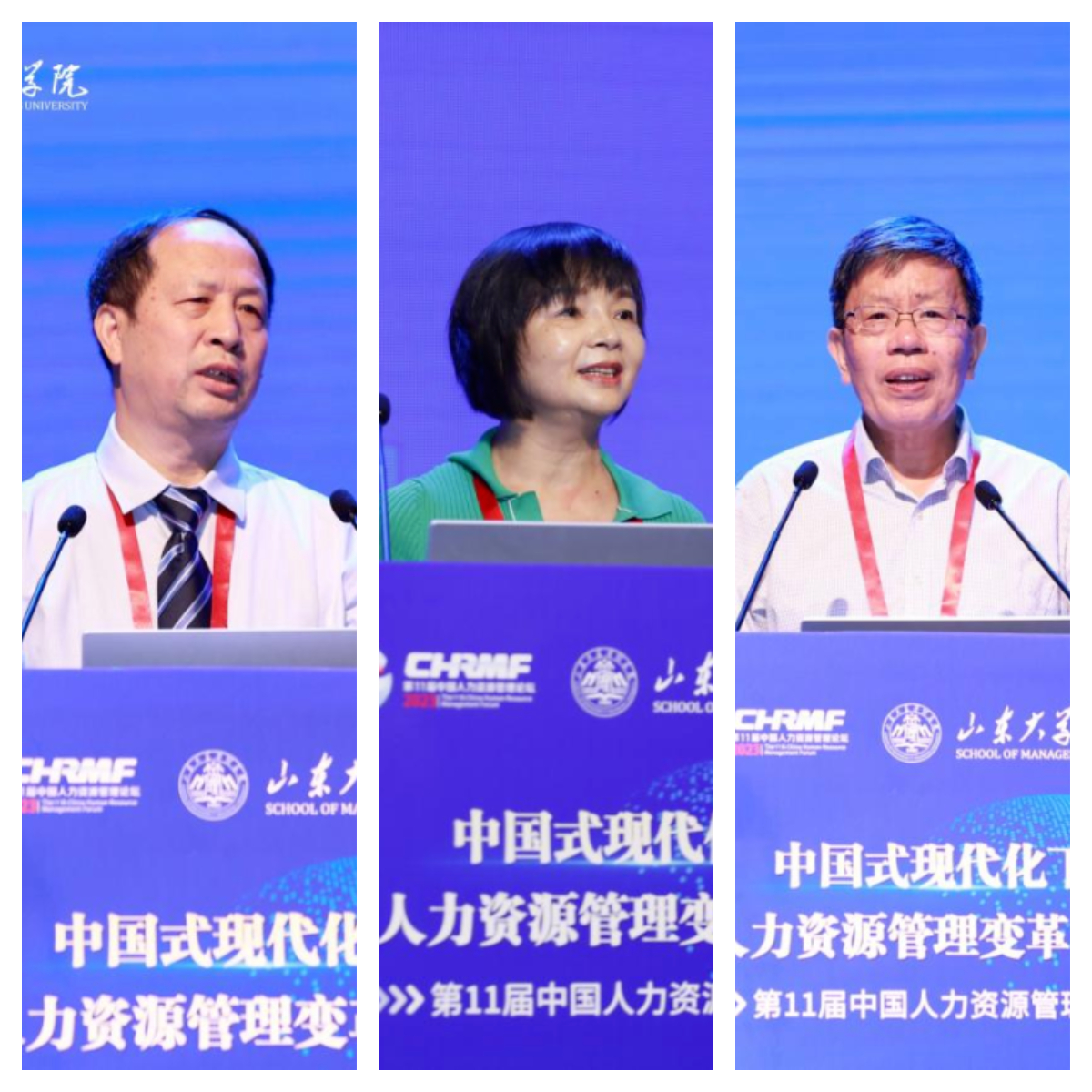
The keynote speech sessions were hosted by Professor Long Lirong of Huazhong University of Science and Technology, Professor Liu Hong of Nanjing University, and Professor Luo Jinlian of Tongji University, respectively.
Parallel Forums and Sub-forums
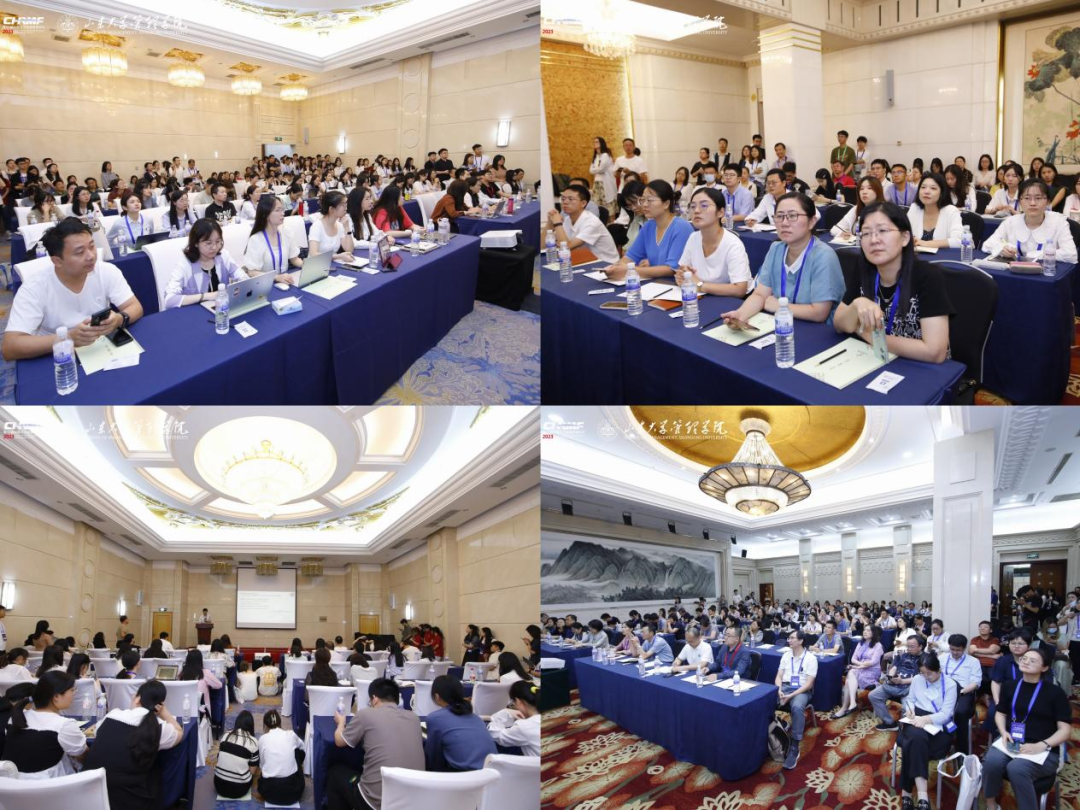
The conference held four parallel forums, in which more than ten experts and scholars and journal editors focused on four themes, namely, “Sharing and Exchanging Experiences of Declaring National Fund Projects”, “How to Conduct Practice-oriented Human Resource Management Research”, “Sharing of Research Methods”, and “Face-to-Face Communication between Journal Editors and Authors”. The speeches included “Discussion of Research Direction in the Field of Macro Human Resource Management” by Professor Su Zhongxing of Renmin University of China, “Lessons Learned and Reflections on the Application of the National Natural Science Foundation of China” by Professor Zhao Xinyuan of Macao University of Science and Technology, “Phenomena-Driven Research on Management” by Professor Wei Xin of Renmin University of China, “Event System Theory--Application of Human Resource Management” by Professor Chen Yang of the University of Electronic Science and Technology of China, “The Polishing Process of Research” by Professor Lin Weipeng of Shandong University, “Longitudinal Research Design and Data Analysis in the Field of Human Resource Management” by Professor Wang Haijiang of Huazhong University of Science and Technology, and “Social Network Analysis Methods in Human Resource Management Research” by Associate Professor Chen Hongzhi of Fudan University. Besides, Zhang Long, Deputy Editor-in-Chief of Chinese Management Studies, Liu Chengqing, Director of Editorial Department of Chinese Journal of Population, Resources and Environment, Wang Chengli, Deputy Director of Editorial Department of Dongyue Tribune, Guo Kai, Director of Editorial Department of Journal of Management, and Xi Meng, Part-time Editor-in-Charge of Human Resource Management Review, exchanged their views on the basic situation of journals and the precautions for submitting manuscripts. The parallel forums were hosted by Professor Liu Jun from Wuhan University of Technology, Professor Gu Qinxuan from Shanghai Jiaotong University, Professor Cheng Dejun from Nanjing University and Professor Yu Guilan from Jilin University.
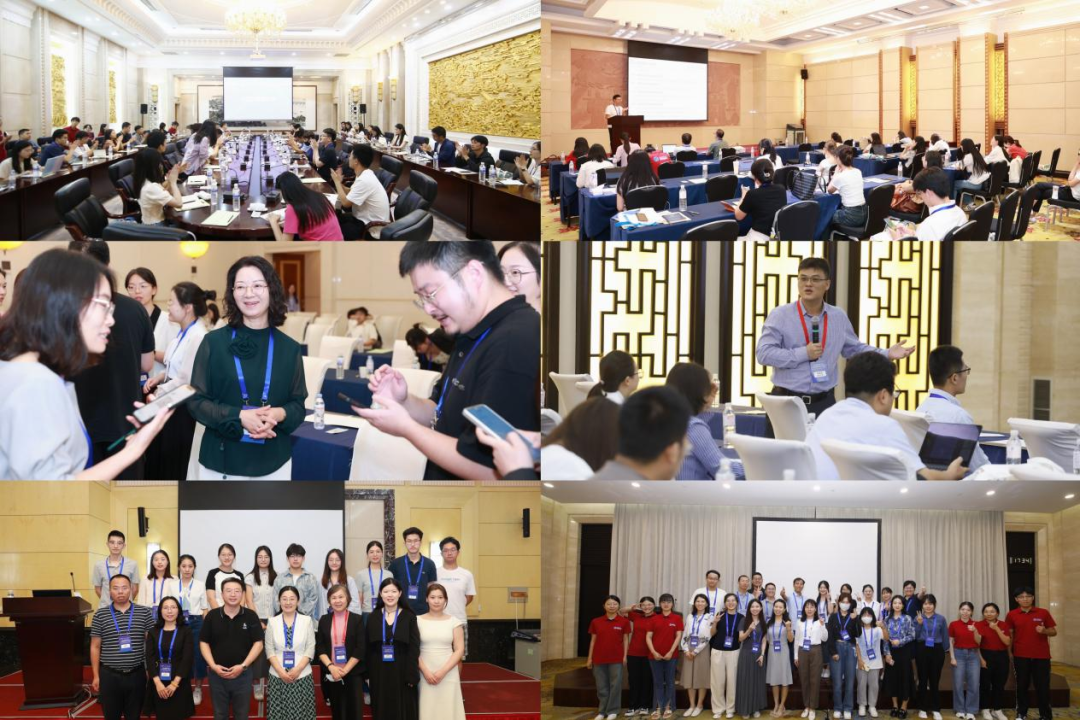
The sub-forums were divided into 28 sessions. The authors of 142 selected papers reported their own research results around the topics of Artificial Intelligence, Digitization, Human Resource Management Practices, Platform and Algorithmic Management, Organizational Behavior, Talent Management, Green Management and Sustainable Development, and receives comments from the critics on the reported papers. In the poster exchange area of the conference, 111 papers were selected for poster presentation, and the poster authors had in-depth exchanges with other participants on the contents of the papers around the five themes of Leadership, Management Psychology, Management in the Digital Era, Organizational Management and Talent Development, and Organizational Behavior.
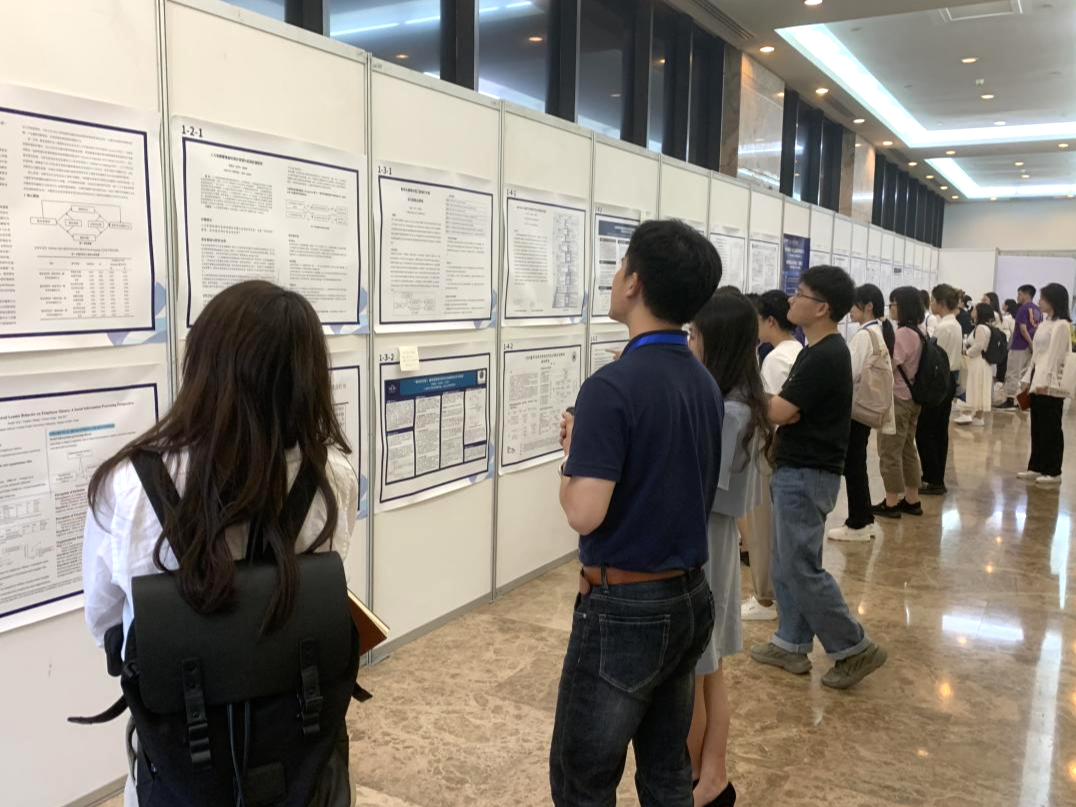
Dialogue with Entrepreneurs
On the morning of September 17th, to strengthen the communication and cooperation between the theoretical community and the practical community of enterprises, the conference built a bridge by hosting the Entrepreneurs’ Forum and the Peak Dialogue between Entrepreneurs and Management Scholars and inviting famous entrepreneurs and management scholars to carry out exchanges of ideas and collisions around the practical problems and scientific frontiers of Chinese human resource management community.
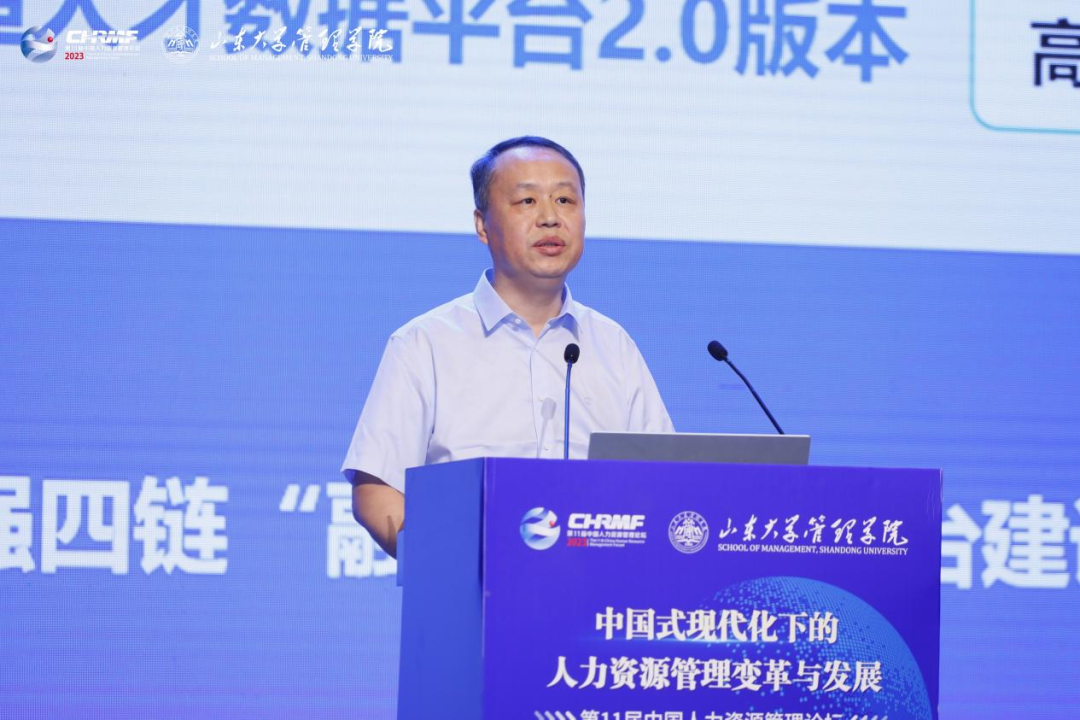
On the Entrepreneur Forum, Wang Weizhong, Chairman of Shandong Talent Group, took the title of “Exploration of Talent Chain Service Mode” to explain the whole chain introduction service mode of the group, starting from the exploration and practice of Shandong Talent Group. He emphasized that the work about market-oriented talents cannot only focus on the talents, and the state-owned talent group is unlike general human resources companies, so it is especially important to pay attention to creating a high-end and efficient business model, and building a platform to create an ecology.
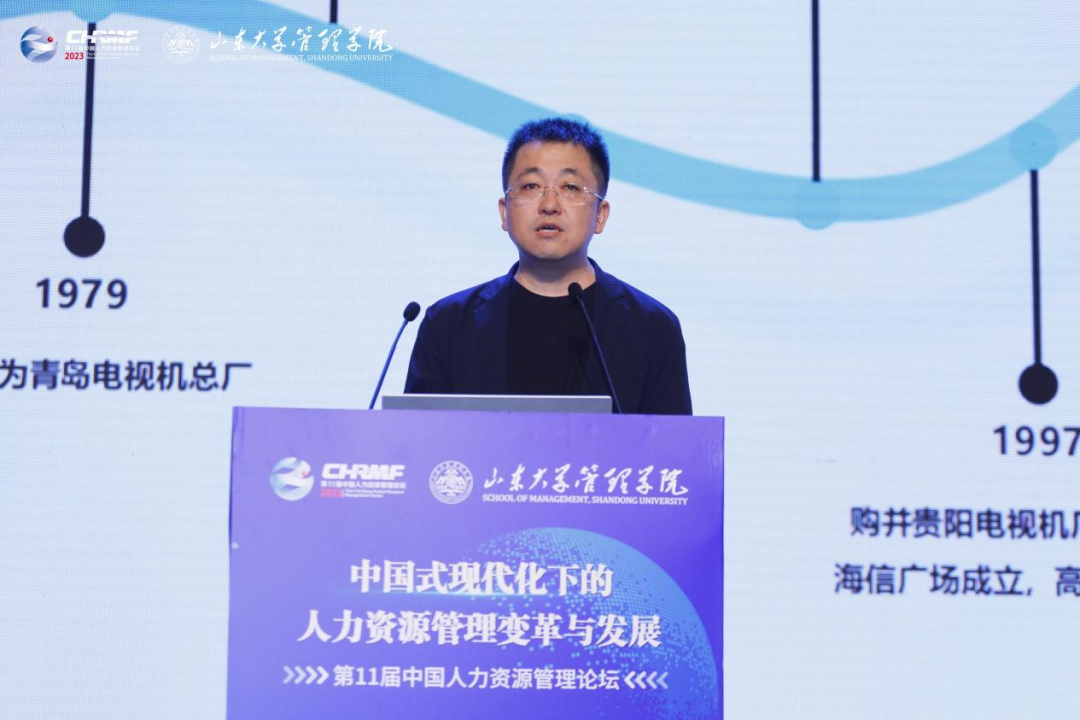
Ma Baolong, Dean of Hisense Academy of Hisense Group, explained the optimization and change of Hisense’s human resource management system with the title of “Human Resource System to Ensure the Execution of Company Strategies on the Ground--Hisense’s Practice”. He believes that in the context of globalization, the core objective of Hisense HR system construction is to support the strategy implementation, improve organizational effectiveness and stimulate the vitality of talents, which requires several specific modules of “Selection, Employment, Training and Retention” to be linked and broken through one by one.
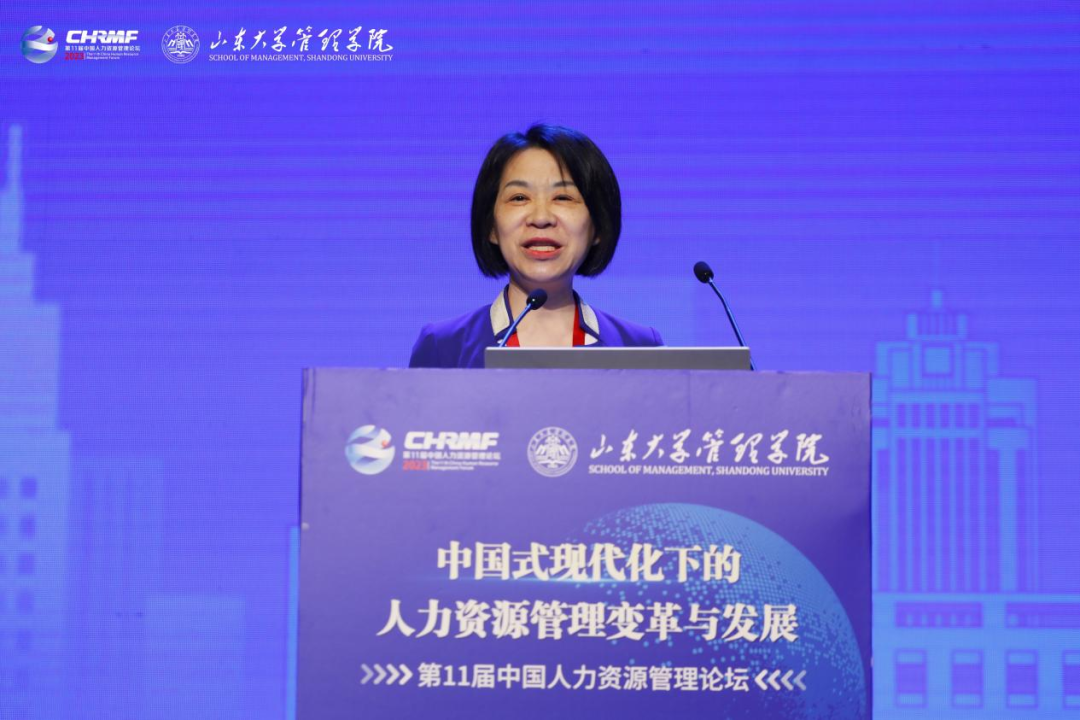
Professor Li Yanping of Wuhan University presided over this session.
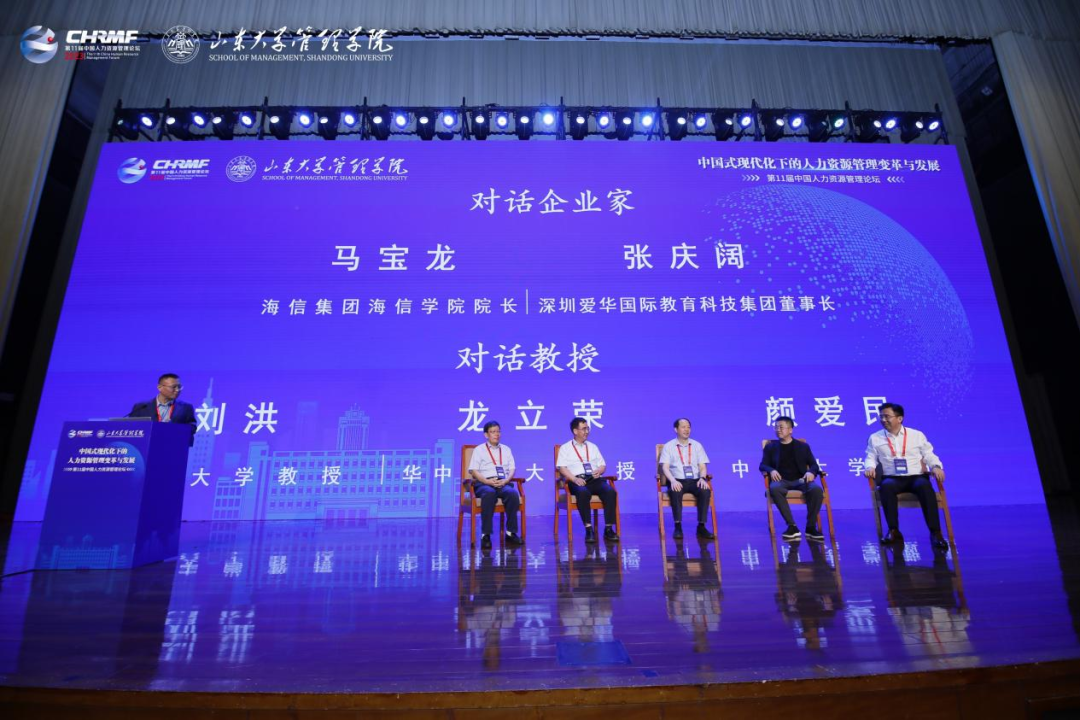
In the peak dialogue between entrepreneurs and management scholars, entrepreneurs including Ma Baolong, Zhang Qingkuo, Chairman of Shenzhen Aihua International Education Technology Co., Ltd., and scholars including Professor Long Lirong, Professor Liu Hong, and Professor Yan Aimin of Central South University, discussed human resource management and digitalization transformation of enterprises around the theme of “Human Resource Management Change under the Chinese Modernization”.
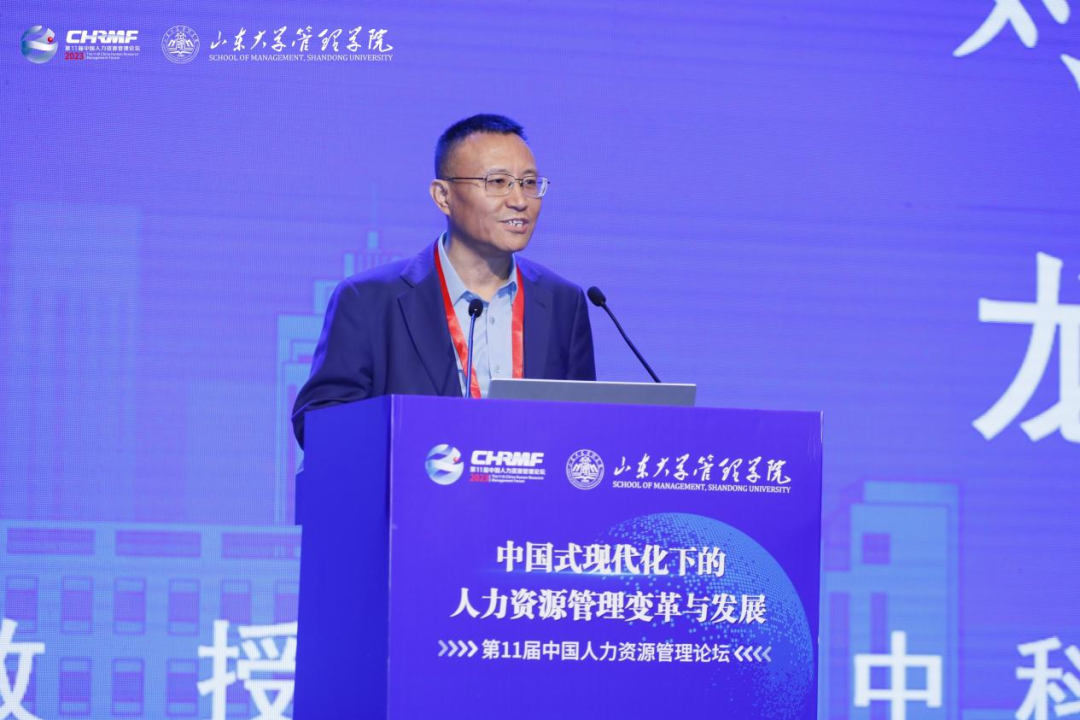
Professor Liu Bing of Shandong University presided over this session.
Closing Ceremony
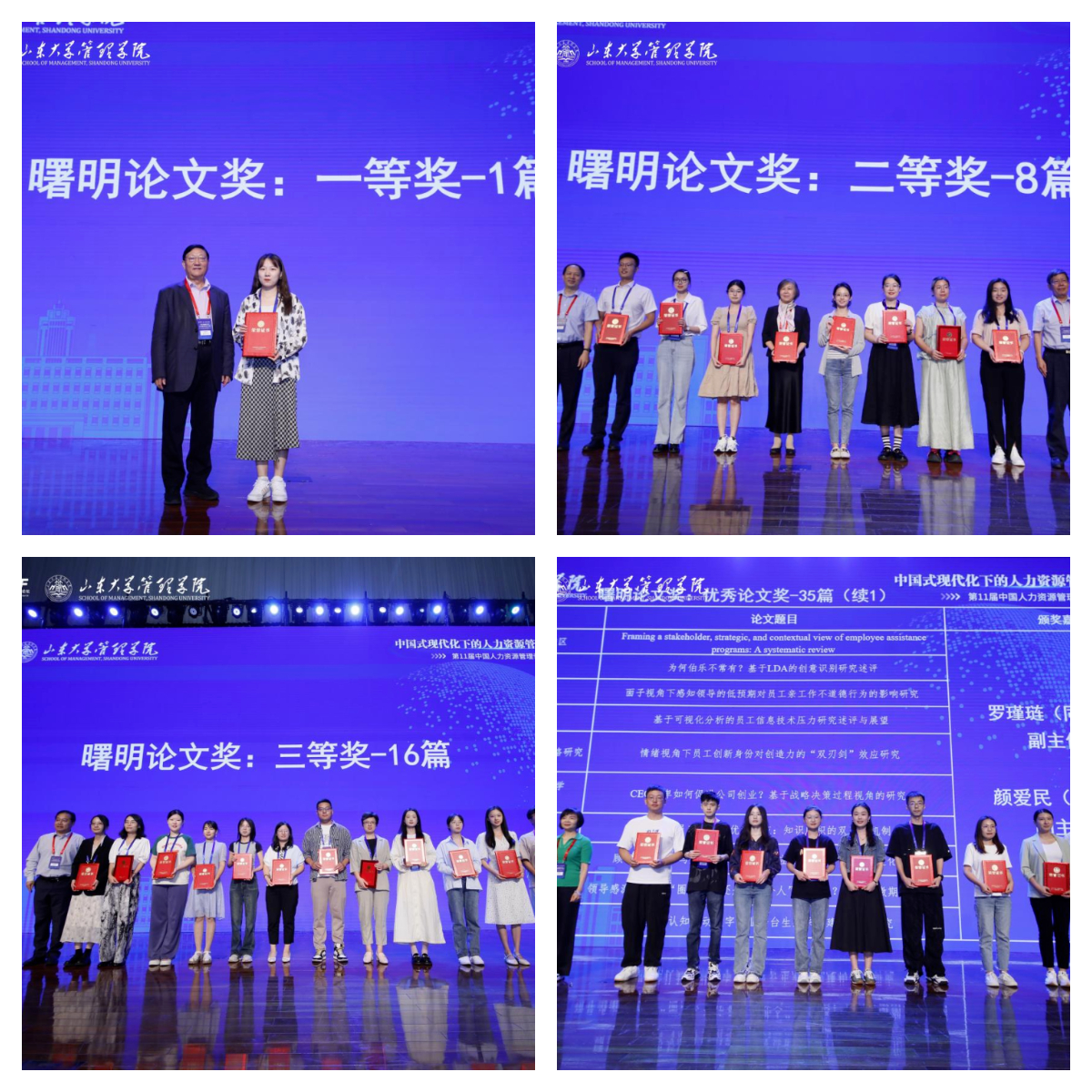
At the closing ceremony, Professor Zhao Shuming presented the award certificates to the award-winners of the 4th “Shuming Paper Award” and made a closing speech.

Professor Zhang Zhengtang of Nanjing University summarized the review of the “Shuming Paper Award”.
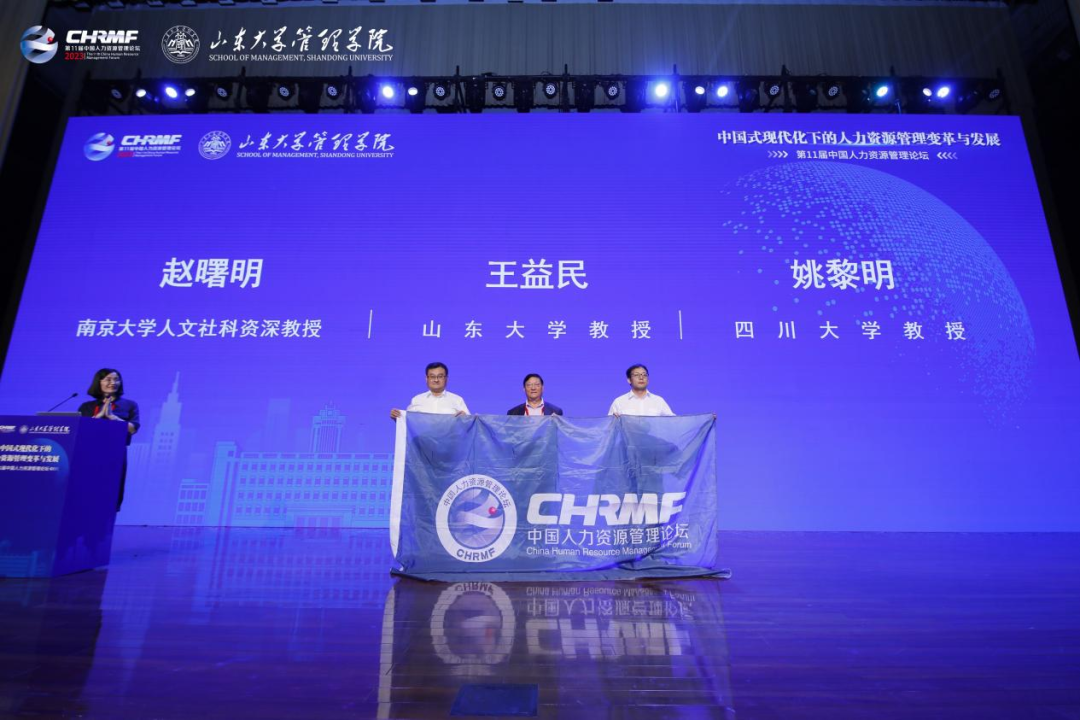
Professor Zhao Shuming, Wang Yimin, Vice Dean of the School of Management of Shandong University, and Yao Liming, Vice Dean of School of Business of Sichuan University, handed over the flag of the forum.
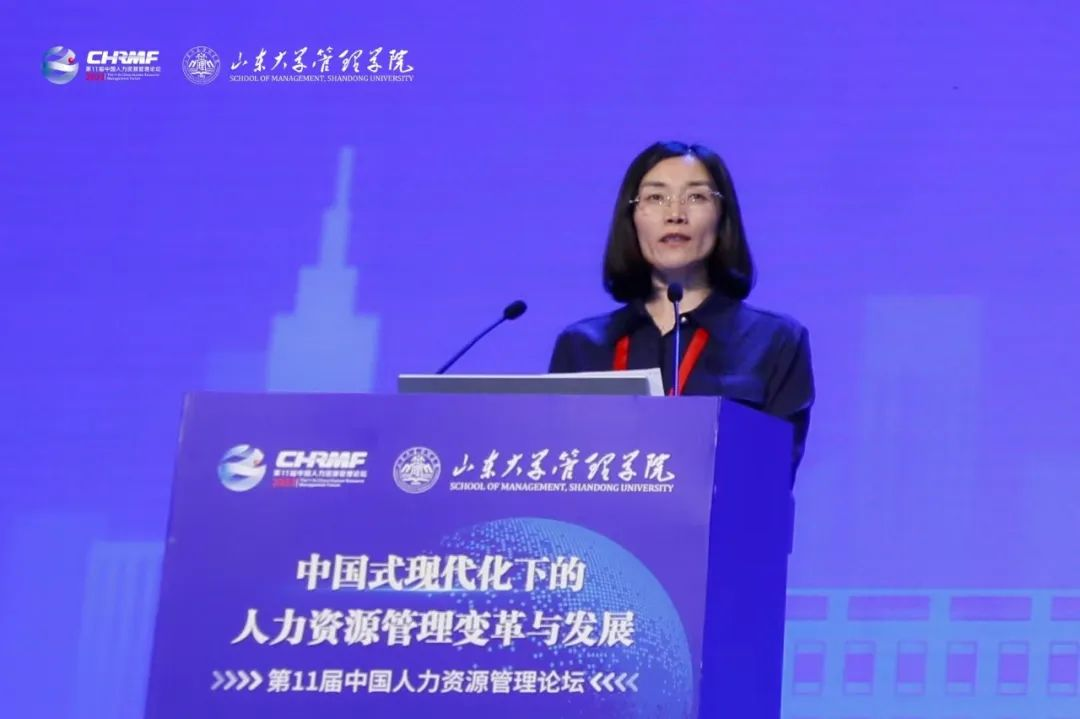
Tang Guiyao, Vice Dean of the School of Management of Shandong University, presided over the closing ceremony.
Since 2012, China Human Resource Management Forum, initiated by Nanjing University, Nankai University, Huazhong University of Science and Technology and the Journal of Management, has been successfully held in 10 famous universities, including Nankai University, Wuhan University, Nanjing University, South China University of Technology, Huazhong University of Science and Technology, Macao University of Science and Technology, Central South University, Northeastern University, Anhui University, and Huaqiao University. With the strong support and joint efforts of all parties, China Human Resource Management Forum has become the most influential high-end academic forum in the field of human resource management and organizational behavior research in China.
